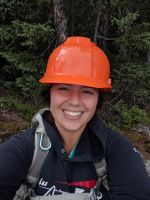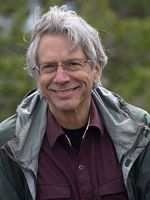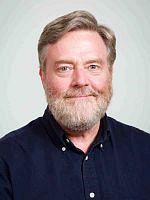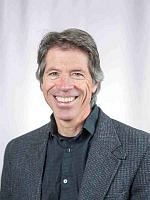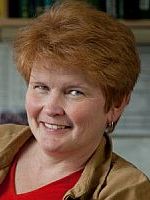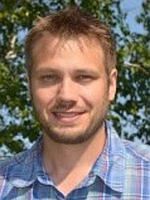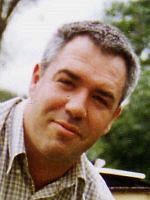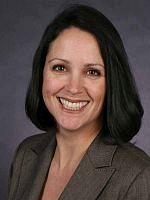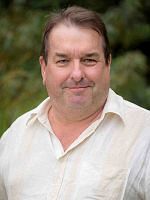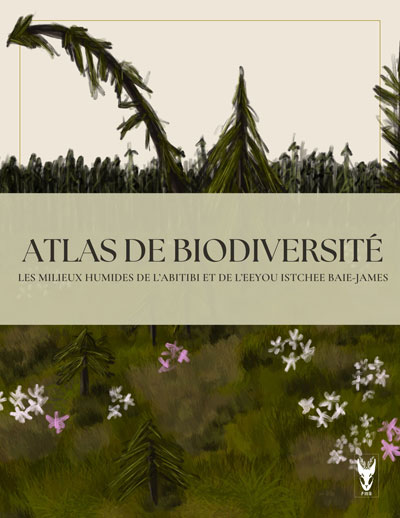North American Forest Soils Conference - International Symposium on Forest Soils
Joint conference sponsored by the SSSA ![]() , CSSS
, CSSS ![]() , IUSS
, IUSS ![]() and IUFRO
and IUFRO ![]()
June 10-16, 2018, Quebec City, Quebec, Canada.
Keynotes
Dan Binkley ![]() has worked on forest ecology and soils for over 35 years, blending applied and basic perspectives in his research and teaching. Research areas with colleagues included sustaining the productivity of forests by sustaining soil fertility, long-term changes in vegetation and soils (along rivers, with tree invasion of tundra as climate warms, and in common-garden experiments), and fundamental controls on ecosystem productivity over time (using plantations of Eucalyptus species in Hawaii and Brazil as model systems). He has published over 160 journal articles, and several books (including The Ecology and Management of Forest Soils, with Dick Fisher). Dr. Binkley was a professor at Duke University and Colorado State University, with degrees from the Swedish University of Agricultural Sciences (Honorary Doctorate), Oregon State University (Ph.D. in forest ecology, with minors in soil science and botany), the University of British Columbia (M.Sc. in forest ecology), and Northern Arizona University (B.S.F. in Forest Management).
has worked on forest ecology and soils for over 35 years, blending applied and basic perspectives in his research and teaching. Research areas with colleagues included sustaining the productivity of forests by sustaining soil fertility, long-term changes in vegetation and soils (along rivers, with tree invasion of tundra as climate warms, and in common-garden experiments), and fundamental controls on ecosystem productivity over time (using plantations of Eucalyptus species in Hawaii and Brazil as model systems). He has published over 160 journal articles, and several books (including The Ecology and Management of Forest Soils, with Dick Fisher). Dr. Binkley was a professor at Duke University and Colorado State University, with degrees from the Swedish University of Agricultural Sciences (Honorary Doctorate), Oregon State University (Ph.D. in forest ecology, with minors in soil science and botany), the University of British Columbia (M.Sc. in forest ecology), and Northern Arizona University (B.S.F. in Forest Management).
Session Keynote - The role of forests and forest soils in climate change adaptation and mitigation
Mark Johnston ![]() is Senior Research Scientist in the Saskatchewan Research Council (SRC) Environment Division, and adjunct professor at the University of Saskatchewan’s Department of Soil Science and School of Environment and Sustainability. He has worked at SRC since 2001 in the areas of forest ecology, climate change impacts and forest carbon sequestration. Recently he helped lead a national study of Canada’s forest sector vulnerability to the impacts of climate change, and continues to work with forest industry and government to assist them in understanding climate change impacts and how they can adapt to these changes. Currently he is leading the development of a rapid assessment protocol for assessing carbon in wetlands, and collaborating with the Canadian Forest Service on a large-scale assessment of carbon stocks on Canadian landscapes certified by the Sustainable Forestry Initiative. Dr. Johnston is a Registered Professional Forester in the province of Saskatchewan, a Certified Senior Ecologist with the Ecological Society of America, and received the Saskatchewan Research Council’s Distinguished Scientist designation in 2006.
is Senior Research Scientist in the Saskatchewan Research Council (SRC) Environment Division, and adjunct professor at the University of Saskatchewan’s Department of Soil Science and School of Environment and Sustainability. He has worked at SRC since 2001 in the areas of forest ecology, climate change impacts and forest carbon sequestration. Recently he helped lead a national study of Canada’s forest sector vulnerability to the impacts of climate change, and continues to work with forest industry and government to assist them in understanding climate change impacts and how they can adapt to these changes. Currently he is leading the development of a rapid assessment protocol for assessing carbon in wetlands, and collaborating with the Canadian Forest Service on a large-scale assessment of carbon stocks on Canadian landscapes certified by the Sustainable Forestry Initiative. Dr. Johnston is a Registered Professional Forester in the province of Saskatchewan, a Certified Senior Ecologist with the Ecological Society of America, and received the Saskatchewan Research Council’s Distinguished Scientist designation in 2006.
Session Keynote - Fire effects on forest soils
Thomas DeLuca ![]() is professor and dean of the W.A. Franke College of Forestry and Conservation at the University of Montana. A forest soil scientist and ecosystem ecologist, Professor DeLuca’s efforts in research, teaching and administration have been focused on sustainable land management and advancing our understanding of natural ecosystem function. During the past 20 years, Professor DeLuca has conducted research in a variety of topics across temperate, boreal, maritime and Arctic settings. Primary research interests include the influence of disturbance on N and C cycling in forest, prairie and tundra ecosystems, fire ecology of temperate and boreal forests, biological N2 fixation in forest ecosystems, sustainable forest management and forest restoration. Professor DeLuca has authored more than 100 refereed research papers, including senior authored papers in Science and Nature. Professor DeLuca received his Ph.D. from Iowa State University (Soil Biology and Biochemistry) while working for the Leopold Center for Sustainable Agriculture; his M.S. from Montana State University in soils; and his B.S. from the University of Wisconsin-Madison in Natural Science (Soil Science).
is professor and dean of the W.A. Franke College of Forestry and Conservation at the University of Montana. A forest soil scientist and ecosystem ecologist, Professor DeLuca’s efforts in research, teaching and administration have been focused on sustainable land management and advancing our understanding of natural ecosystem function. During the past 20 years, Professor DeLuca has conducted research in a variety of topics across temperate, boreal, maritime and Arctic settings. Primary research interests include the influence of disturbance on N and C cycling in forest, prairie and tundra ecosystems, fire ecology of temperate and boreal forests, biological N2 fixation in forest ecosystems, sustainable forest management and forest restoration. Professor DeLuca has authored more than 100 refereed research papers, including senior authored papers in Science and Nature. Professor DeLuca received his Ph.D. from Iowa State University (Soil Biology and Biochemistry) while working for the Leopold Center for Sustainable Agriculture; his M.S. from Montana State University in soils; and his B.S. from the University of Wisconsin-Madison in Natural Science (Soil Science).
Session Keynote - Management practices, land-use change and soil-forest productivity
Cindy Prescott ![]() is professor of Forest Ecology in the Department of Forest and Conservation Sciences, Faculty of Forestry at the University of British Columbia, Vancouver, British Columbia. Dr. Prescott’s forest soils research has focused on nutrient cycling, decomposition, forest nutrition, and soil and forest restoration. She has published more than 120 refereed journal papers on topics related to forest nutrition and nutrient cycling, including: rates of litter decomposition, influences of site and tree species on N availability in soils, effects of forestry practices on soil processes, long-term effects of forest fertilization, linking soil organisms and nutrient cycling processes, and soil reclamation. She is currently Editor of Forest Ecology and Management and previously served as Editor of the Canadian Journal of Forest Research. Dr. Prescott received the Canadian Forestry Scientific Achievement Award in 2005 and a Honourary Doctorate from the University of Helsinki in 2014.
is professor of Forest Ecology in the Department of Forest and Conservation Sciences, Faculty of Forestry at the University of British Columbia, Vancouver, British Columbia. Dr. Prescott’s forest soils research has focused on nutrient cycling, decomposition, forest nutrition, and soil and forest restoration. She has published more than 120 refereed journal papers on topics related to forest nutrition and nutrient cycling, including: rates of litter decomposition, influences of site and tree species on N availability in soils, effects of forestry practices on soil processes, long-term effects of forest fertilization, linking soil organisms and nutrient cycling processes, and soil reclamation. She is currently Editor of Forest Ecology and Management and previously served as Editor of the Canadian Journal of Forest Research. Dr. Prescott received the Canadian Forestry Scientific Achievement Award in 2005 and a Honourary Doctorate from the University of Helsinki in 2014.
Session Keynote - Technological advances in forest soils research
Nathan Basiliko ![]() is a faculty member and Canada Research Chair in Environmental Microbiology at Laurentian University in Sudbury, Ontario. His group combines new molecular tools with more classical approaches in ecosystem sciences and soil microbiology to study how forest and wetland soil biota respond to resource management, climate change, and other stressors in the Great Lakes St. Lawrence (northern temperate hardwood) and Boreal Forest regions. Dr. Basiliko also explores general controls on microbial diversity in soils, links between diversity and activity, and how different soil microbial communities transform plant tissues into soil organic matter and then subsequently decompose this organic matter to mineral products, including greenhouse gases. Prior to joining Laurentian in 2013, he was a faculty member at the University of Toronto and a post-doctoral fellow in Forest Sciences at the University of British Columbia. He completed his bachelors in Natural Resources at Cornell University and doctorate in Physical Geography at McGill University.
is a faculty member and Canada Research Chair in Environmental Microbiology at Laurentian University in Sudbury, Ontario. His group combines new molecular tools with more classical approaches in ecosystem sciences and soil microbiology to study how forest and wetland soil biota respond to resource management, climate change, and other stressors in the Great Lakes St. Lawrence (northern temperate hardwood) and Boreal Forest regions. Dr. Basiliko also explores general controls on microbial diversity in soils, links between diversity and activity, and how different soil microbial communities transform plant tissues into soil organic matter and then subsequently decompose this organic matter to mineral products, including greenhouse gases. Prior to joining Laurentian in 2013, he was a faculty member at the University of Toronto and a post-doctoral fellow in Forest Sciences at the University of British Columbia. He completed his bachelors in Natural Resources at Cornell University and doctorate in Physical Geography at McGill University.
Session Keynote - Forest soil monitoring networks and environmental change: successes and challenges
Bruno De Vos ![]() is Senior Scientist at the Research Institute for Nature and Forest (INBO) in Flanders, Belgium. His research is focused on physico-chemical properties of forest soils, soil carbon stock assessments, biogeochemical nutrient cycling and heavy metal contamination in semi-natural ecosystems. As Chairman of the United Nations (UN)/Economic Commission for Europe (ECE) International Co-operative Programme (ICP) Forests expert Panel on Soil and Soil Solution since 2007, he is strongly involved in pan-European Forest soil surveying on more than 5000 systematic Level I plots and 350 intensively monitored level II plots within the ICP Forests network. The ICP network was developed to gain insight into the geographic and temporal variations in forest and soil conditions across Europe and aims to clarify cause-effect relationships. Dr. De Vos tries to combine field experience in soil sampling, soil profile description and classification with analytical laboratory work on standardized methods, quality assurance, comprehensive geodatabases development and data evaluation.
is Senior Scientist at the Research Institute for Nature and Forest (INBO) in Flanders, Belgium. His research is focused on physico-chemical properties of forest soils, soil carbon stock assessments, biogeochemical nutrient cycling and heavy metal contamination in semi-natural ecosystems. As Chairman of the United Nations (UN)/Economic Commission for Europe (ECE) International Co-operative Programme (ICP) Forests expert Panel on Soil and Soil Solution since 2007, he is strongly involved in pan-European Forest soil surveying on more than 5000 systematic Level I plots and 350 intensively monitored level II plots within the ICP Forests network. The ICP network was developed to gain insight into the geographic and temporal variations in forest and soil conditions across Europe and aims to clarify cause-effect relationships. Dr. De Vos tries to combine field experience in soil sampling, soil profile description and classification with analytical laboratory work on standardized methods, quality assurance, comprehensive geodatabases development and data evaluation.
Session Keynote - Societal change and forest soils: a balancing act
Ellen Bergfeld ![]() is the Chief Executive Officer of the American Society of Agronomy (ASA), Crop Science Society of America (CSSA), Soil Science Society of America (SSSA), and the Alliance of Crop, Soil and Environmental Science Societies, (ACSESS), headquartered in Madison, Wisconsin. ASA, CSSA and SSSA combined have more than 25,000 members and certified professionals serving the agronomic, crop and soil science disciplines. ACSESS serves as the support organization carrying out the day-to-day work on behalf of scientific societies in the agricultural and natural resources arena. Key activities of the Societies include publishing (Digital Library: 20 peer reviewed journals, more than 350 books and magazines), annual meetings and specialized conferences, certification, education, science policy and science communications and the societies collectively have an annual budget of greater than $10M. Prior to joining ASA, CSSA, and SSSA, she served as Executive Director of the American Society of Animal Science. Dr. Bergfeld received her B.S. degree in Animal Science from the Ohio State University and M.S. and Ph.D. degrees from the University of Nebraska-Lincoln.
is the Chief Executive Officer of the American Society of Agronomy (ASA), Crop Science Society of America (CSSA), Soil Science Society of America (SSSA), and the Alliance of Crop, Soil and Environmental Science Societies, (ACSESS), headquartered in Madison, Wisconsin. ASA, CSSA and SSSA combined have more than 25,000 members and certified professionals serving the agronomic, crop and soil science disciplines. ACSESS serves as the support organization carrying out the day-to-day work on behalf of scientific societies in the agricultural and natural resources arena. Key activities of the Societies include publishing (Digital Library: 20 peer reviewed journals, more than 350 books and magazines), annual meetings and specialized conferences, certification, education, science policy and science communications and the societies collectively have an annual budget of greater than $10M. Prior to joining ASA, CSSA, and SSSA, she served as Executive Director of the American Society of Animal Science. Dr. Bergfeld received her B.S. degree in Animal Science from the Ohio State University and M.S. and Ph.D. degrees from the University of Nebraska-Lincoln.
Peter Clinton ![]() is a forest ecologist and Science Leader, Forest Systems with Scion based in Rotorua, New Zealand. His research interests cover carbon and nutrient dynamics and plant soil interactions. Dr. Clinton’s work has also focused on water use by trees, biogeochemistry of natural forests, impacts of forest management and impacts of wastewater on microbial communities. He has led the Government funded national programme on Sustainable Forest Management, which provides core capability to support the sustainable management of New Zealand planted forests since 2005. Until very recently, he was the coordinator of the International Union of Forest Research Organisations’ working group on Forest Soils. He was awarded an Organisation for Economic Co-operation and Development (OECD) fellowship in 2002 to study sustainable forest management issues in Europe and was the national team leader for the IEA Bioenergy task for 4 years until 2003. He gained his Ph.D. from the University of Canterbury and has published over 90 refereed papers. Currently he is responsible for the Government/industry funded research programme, Growing Confidence in Forestry’s Future.
is a forest ecologist and Science Leader, Forest Systems with Scion based in Rotorua, New Zealand. His research interests cover carbon and nutrient dynamics and plant soil interactions. Dr. Clinton’s work has also focused on water use by trees, biogeochemistry of natural forests, impacts of forest management and impacts of wastewater on microbial communities. He has led the Government funded national programme on Sustainable Forest Management, which provides core capability to support the sustainable management of New Zealand planted forests since 2005. Until very recently, he was the coordinator of the International Union of Forest Research Organisations’ working group on Forest Soils. He was awarded an Organisation for Economic Co-operation and Development (OECD) fellowship in 2002 to study sustainable forest management issues in Europe and was the national team leader for the IEA Bioenergy task for 4 years until 2003. He gained his Ph.D. from the University of Canterbury and has published over 90 refereed papers. Currently he is responsible for the Government/industry funded research programme, Growing Confidence in Forestry’s Future.
Conference Schedule
| Sunday June 10 | Monday June 11 | Tuesday June 12 | Wednesday June 13 | Thursday June 14 | Friday June 15 | Saturday June 16 | |
| 8h00 | Plenary session | Field excursion | Plenary session | Plenary session | Post conference tour | Post conference tour | |
| 12h00 | Lunch | Lunch | Lunch | ||||
| 13h00 | Plenary session | Plenary session | Plenary session | ||||
| 18h00 | Ice breaker | Free time | Free time | Banquet |






